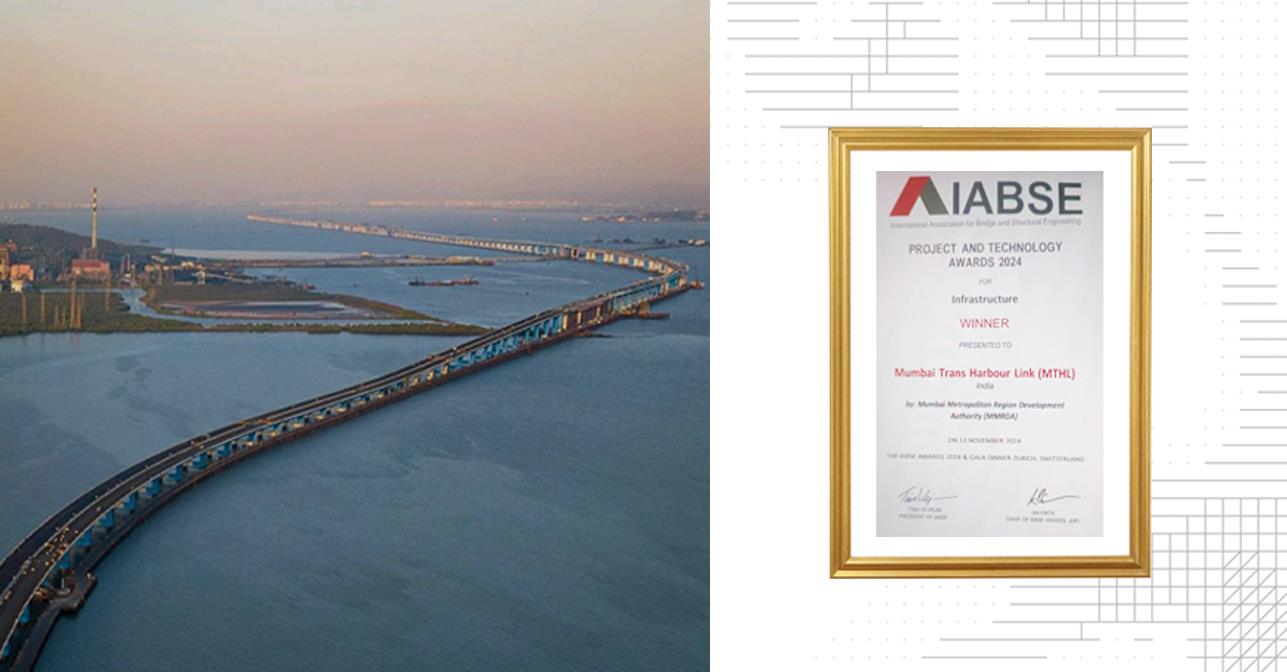
Date05.12.24
Location Asia
Award
The Mumbai Trans Harbour Link (MTHL) – the largest sea link in India – has won the prestigious Project and Technology Award at the 2024 IABSE Awards and Gala Dinner. This transformative infrastructure project spans an impressive 21.8 km, with 16.5 km extending over the sea, and serves as a vital connection between Mumbai and Navi Mumbai, significantly improving connectivity and reducing travel time in the region.
The 2024 IABSE Awards and Gala Dinner, held on November 12th at the Volkshaus Zurich, Switzerland, brought together the global community of structural engineering professionals to honour outstanding achievements in the field. This annual event recognises groundbreaking innovations and remarkable individuals whose contributions shape the future of engineering.
The IABSE Awards continue to set a global standard by highlighting excellence through two categories – the People and Paper Awards and the Projects and Technology Awards. These categories ensure that all facets of engineering –from research and innovation to practical implementation– are celebrated. The event also provides a unique platform for networking and collaboration, enabling industry leaders to exchange ideas and build valuable connections.
The MTHL, initiated by the Mumbai Metropolitan Region Development Authority (MMRDA) and funded by the Japan International Cooperation Agency (JICA), addresses the challenges posed by the rapid expansion of Navi Mumbai. Inaugurated in January 2024, the bridge serves around 70,000 vehicles daily and was developed at an estimated cost of three billion USD.
As part of a consortium including AECOM Asia, PADECO, and TYLin, Dar provided critical design review and site supervision services for the MTHL project. Dar’s team ensured that all project procedures, industry standards, and regulations – including quality assurance, safety, and environmental management plans – were followed meticulously.
The design of the bridge prioritises environmental conservation, incorporating noise and vision barriers to protect local wildlife and sensitive ecosystems. The MTHL also features innovative technology, including automated toll collection and intelligent transport systems. A key highlight is the introduction of orthotropic steel deck spans, a first in India, which allow for longer spans without the need for support pillars, preserving essential shipping routes beneath the bridge.
As part of the MTHL consortium, we are proud to contribute to one of India’s most significant infrastructure projects, shaping the future of transportation and connectivity in the region.
